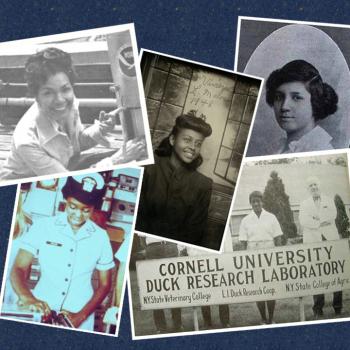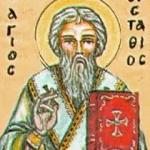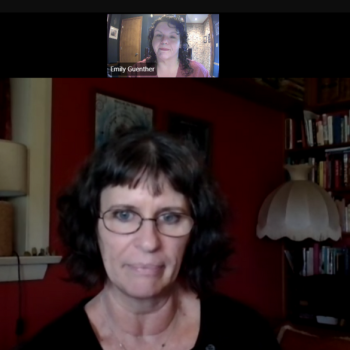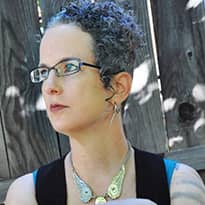Recently, I wrote two lengthy essays on this topic that I hope you take the time to read, but given Drew Jacob's post and Star Foster's call to put this discussion on the table again, here are some more thoughts to add to the discussion.
While at a cocktail party last week, I ended up in conversation with a man who teaches at a local psychic school. In the course of our encounter, I mentioned that one of the things I teach is how to get to know and bring into alignment one's Animal Soul, Human Soul, and God Soul. He recoiled a bit and said something along the lines of, "I never deal with the animal part. Isn't that all just first chakra stuff? Did you know that some animals don't even have emotions?" In the midst of my explanation about why it is important to me to have access to myself as animal, human, and divine, I thought, "This is yet another reason why I am a Pagan."
I want access to all of my energy centers, not just the ones thought to be situated from the chest on up. The ancient Celts teach us that we start with the base cauldron, that nestles in our pelvic bowl, and we move from there up to the solar plexus, and then into the head, bringing all centers into harmony within ourselves, and thus with the spirit that flows through us. I would call this dedication to balancing things of earth with the numinous to be a hallmark of Paganism. This feels important to me.
While we might have some things in common with this man who practices the psychic arts, Pagans are not afraid of the dark, the primal, the fertile. Even those of us who worship the Sun Gods tend to also work through sex, and matter, and via the things of this lovely earth. Our religion is living. Our Gods are as present as my hands upon this keyboard. The smallest flower is as sacred as the furthest star.
Paganism is concerned with the primacy of direct connection and relationship. Whether we are polytheists or not, whether we work magick or not, our religious or spiritual impulse comes from a place of direct communication with forces, or with Nature, or with parts of our own soul that have the ability to affect, and be affected by, the manifest world. Some of us connect through the ancestors. Some of us walk through cathedrals of trees. Some of us build lodges on the inner planes, and seek out teaching there. (From "Paganism: One Working Answer")
Yes, Pagans are problematic. No, we don't agree. Yes, some people are ill behaved. No, not everyone thinks very deeply about the confluence of belief and action. However, I would be startled if a Southern Baptist would look at a Methodist and say, "The way you believe and practice looks little like the way I believe and practice, so I'm not going to call myself a Christian."
As I wrote in "Paganism: Some Questions":
All identities become problematic. Pagan is an umbrella term for me, even though my friend, the scholar Michael York is more accurate in naming it "paganisms." But then, Christianity could more accurately be named christianities. The radical Catholics I get arrested with on occasion have less in common with your average Southern Baptist than I do with my Thelemic sisters or Heathen partner.
I'm all for self-definition. I'm also, as I've stated before, suspicious of too much clinging to solid identity. There is also a sense, though, that a larger umbrella of association can be of help to us. There are commonalities of worship and belief and practice, even while there are stark differences among us. I'm with Drew in that I've attended Druid rituals that were a lot more in line with other neo-Pagan rituals than I had hoped or expected. There is a homogeneity that has crept in that feels problematic, but I don't feel there has to be.
I would far prefer that Heathen and Druid rituals look almost nothing like Wiccan rituals and that we could all learn something from this cross pollination, and still sit around the same fire, sharing the beverages of our choice. Why? Only ever sitting in our separate enclaves feels like we are missing out on some opportunities for growth and self-examination. Why do we do ritual in the way we do? Why not? How do we interact with our Goddesses and Gods? What is our theology and why?
Sitting around the fire with people we don't agree with pushes us to become better, to think more deeply, to practice more concretely, to stretch our muscles. When we only live in association with like-minded folk, we are the lesser for it. There is nothing that says we cannot associate with a wide variety of groups without all coming under a common rubric. But the reality is, mostly we don't and won't. Mostly, we will drift further and further apart, coming back to the sense of, "We are not like those people over there. They are of a different tribe. We have our own." The thought of that saddens me.
Diversity fosters health, whether in a bioregion, human society, or what I call the cosmosphere. Monoculture is a long road to obsolescence. Factory farms are unsustainable and have made us unhealthy as a nation. Small farms with a variety of crops and animals tend to grow healthy food from healthy soil, resulting in a healthy biosphere and healthier people. Yes, there are farmers who specialize, but they do so still, in a climate and culture that fosters multiplicity.
I want us to have healthy religions, filled with discourse, learning, and practice. For me, using Pagan as an overarching word can help us to stay in touch, to grow together, to struggle, to learn, and to feed each other well.
5/29/2011 4:00:00 AM





